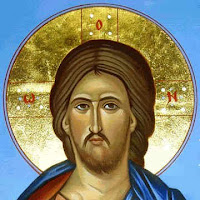Presentation by Bishop Mark Lawrence of South Carolina, and ACNA Bishop John Guernsey
A.S. Haley
posted April 29, 2012
The Rev. Canon Dr. Kendall Harmon has posted at his blog a link to an audio recording of remarks which Bishop Mark Lawrence of South Carolina and Bishop John Guernsey of the ACNA Diocese of the Mid-Atlantic delivered to an audience hosted by the Diocesan Evangelical Fellowship of the Diocese of Guildford, just southwest of London, an event which occurred during the recent GAFCON meeting in London, but which was independent of that gathering. The format (following introductions) called for remarks first by Bishop Lawrence, then by Bishop Guernsey, and closed with a robust session of questions-and-answers. The link requires an mp3 player and may be downloaded or listened to here, as well as at the bottom of this post. It is about an hour and a half in duration, but worth every minute.
Bishop Lawrence begins with a brief recounting of the problems that beset a diocese and its bishop who are striving to remain true to their Anglican heritage in the midst of the cultural wars sweeping through the Episcopal Church (USA). The chief problem is caused by what he calls the “false gospel of indiscriminate inclusivity”—the idea that uncouples repentance from sin, and treats the latter as respectable by pushing a false ideal of “equality.” In trying to keep his Diocese on a true course, Bishop Lawrence found that his Diocese had four kinds of constituents: (1) About 10% who are “in lockstep” with ECUSAs General Convention and leadership; (2) About 30-35% who just want to continue doing what they’ve always done, and who expect the Bishop to keep all outside forces for change at bay; (3) Another 35% or so who keep themselves aware of happenings within ECUSA and the Anglican Communion, and who support his orthodox stance athwart those trends; and (4) a final 15-20% who ask only two questions: “Are we leaving, or going?” and “When?”
He then makes clear that because his own Diocese has been so isolated by ECUSA, it is more important than ever for them to stay connected with the rest of the Anglican Communion, and hence his attendance at the two GAFCONs to date, as well as the partnerships they have entered into with many other orthodox provinces and dioceses. Within ECUSA itself, relations are most difficult—he describes them as a kind of “Cold War.” In such circumstances, just as in the original Cold War, every step taken by one side can be interpreted as an act of aggression by the other side. He looks forward to the day when the whole of ECUSA, and not just South Carolina, will not look upon ACNA as “the enemy.”
Bishop Guernsey opens by telling the story of his own church’s journey in leaving the Diocese of Virginia before the “new sheriff in town” made it impossible for the rest of the congregations there to follow peaceably. He then tells the story of the remarkable coming together of ACNA, and how, to its founders, bringing the Gospel to the unchurched was more important than any individual theology. He makes abundantly clear that ACNA has no mission to attract “disgruntled Episcopalians”—“we’re here,” he says, “we’re not going anywhere, and they know where to find us.” ACNA has grown so strongly in its early years—two new churches a week, on average—because it is targeting people who never before heard the Gospel, and not those who are in other churches already.
the rest
[Excellent! Take time to listen to the whole thing-it is well worth hearing these perspectives and summaries of events regarding Anglicanism, ACNA and TEC. -PD]


0 Comments:
Post a Comment
<< Home